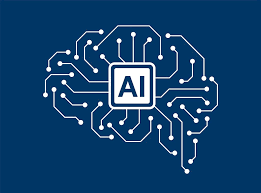AI and Smart Cities: Building the Urban Centers of Tomorrow
Artificial Intelligence (AI) is fundamentally altering the field of research in science and is opening new avenues and speeding up discoveries across a variety of fields. Here’s a complete overview of the ways artificial intelligence is changing the way scientists conduct research.
Enhanced Data Analysis
One of the biggest impacts of artificial intelligence (umělá inteligence) in scientific research is the ability to analyze huge amounts of data rapidly and with precision. Traditional methods of data analysis often struggle with the sheer volume of information that is generated in current research. AI, particularly with machine learning algorithms can interpret and process large data sets at speeds which are not possible for humans. This is a huge advantage in fields like genomics which AI algorithms aid in identifying patterns in genetic data, leading to the development of personalized medicine and specific therapies.
Accelerating Drug Discovery
AI can also transform drug discovery and development. The process of creating new drugs can be long and costly, with a long screening of potential substances. AI algorithms can anticipate how various compounds will interact with biological targets in specific ways which significantly reduces the list of potential candidates that need to be tested in the laboratory. This does not just speed up the discovery process but also reduces expenses and increases the chance of achieving successful results. For instance, AI models have already been used to discover new antibiotics as well as to find possible treatments for diseases such as Alzheimer’s and cancer.
Improving Experimental Design
Alongside analyzing data and discovering new drugs AI can also improve the design of experiments. Traditional experimental design can be laborious and susceptible to human errors. AI-driven systems can help optimize the parameters for experiments, predict results and recommend the most efficient strategies. This does not just improve the reliability of experiments but also assists researchers to avoid common pitfalls and wasted resources.
Facilitating Interdisciplinary Research
AI has broken down the walls between scientific disciplines by enabling more effective interdisciplinary research. For example, AI tools can integrate information from various fields like biology, chemistry, and physics, fostering collaborative initiatives that spur the development of. With a central platform for data analysis and model-building, AI facilitates the synthesis of knowledge from different domains and leads to more integrated and comprehensive research outcomes.
Challenges and Ethical Considerations
Although it has potential however, the integration of AI into research presents issues. Concerns regarding data privacy and bias in algorithmic computation, as well as their transparency AI models are crucial issues that researchers must address. Making sure that AI systems are used responsibly and ethically is essential to ensure trust in research findings and ensure that the benefits of AI are distributed equally.
Conclusion
AI is undoubtedly revolutionizing scientific research, offering unparalleled capabilities in research and analysis of data, discovery of drugs, experimental design, and inter-disciplinary collaboration. With technology continuing to advance it is essential for researchers to navigate the associated challenges carefully and to harness AI’s full potential to improve knowledge and improve the lives of people.

